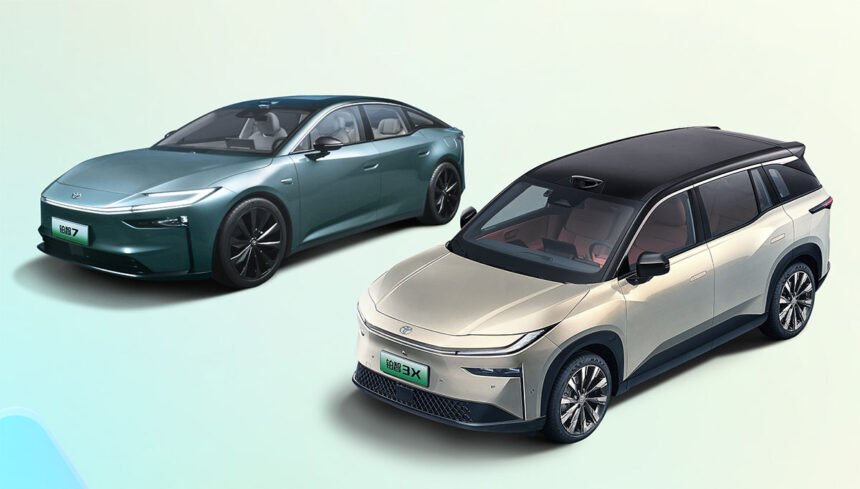Toyota’s joint venture in China, GAC Toyota, is making significant changes to its operations in order to better compete in the country’s rapidly growing electric vehicle (EV) market. The automaker has announced that decision-making for new vehicle development in China will now be transferred from Japan to China, a move aimed at regaining relevance in the world’s largest EV market.
Yoshiaki Konishi, head of Toyota’s EV R&D center in China, revealed this new strategy at a technology event hosted by GAC Toyota. The plan involves implementing local R&D tailored specifically to the Chinese market, with a focus on accelerating the production of better vehicles in China.
To achieve this goal, GAC Toyota will appoint local personnel who have a deep understanding of the Chinese market to lead R&D efforts for new models and facelifts. This shift in approach is expected to transform Toyota’s working methods and enable the production of cars that better meet the needs of Chinese consumers.
In recent years, Japanese automakers have faced increasing competition from domestic brands in China’s EV market. Data from the China Passenger Car Association (CPCA) shows that in May, new energy vehicle (NEV) retail sales accounted for over half of all new vehicle retail sales in the country, with domestic brands dominating the market.
Nissan, another Japanese automotive giant, has already adjusted its strategy in China with positive results. Its joint venture, Dongfeng Nissan, launched the N7, a pure electric sedan developed by a Chinese team, which received over 17,000 orders within a month of its launch.
Toyota has also seen success with its localization efforts. The bZ3X, the first all-electric model developed by RCE, sold 15,000 units in its first month on the market. GAC Toyota’s locally developed bZ7 is set to launch in early 2026 and will feature advanced technology from Huawei and Xiaomi.
In addition to new electric models, GAC Toyota plans to offer extended-range electric vehicle (EREV) variants of its popular Highlander SUV and Sienna MPV in China. These efforts demonstrate Toyota’s commitment to adapting to the evolving Chinese market and meeting the growing demand for electric vehicles.
Overall, Toyota’s decision to prioritize local R&D in China is a strategic move that reflects the company’s determination to stay competitive in the world’s largest EV market. By leveraging local expertise and tailoring its products to meet Chinese consumer preferences, Toyota is positioning itself for success in the rapidly changing automotive landscape.







